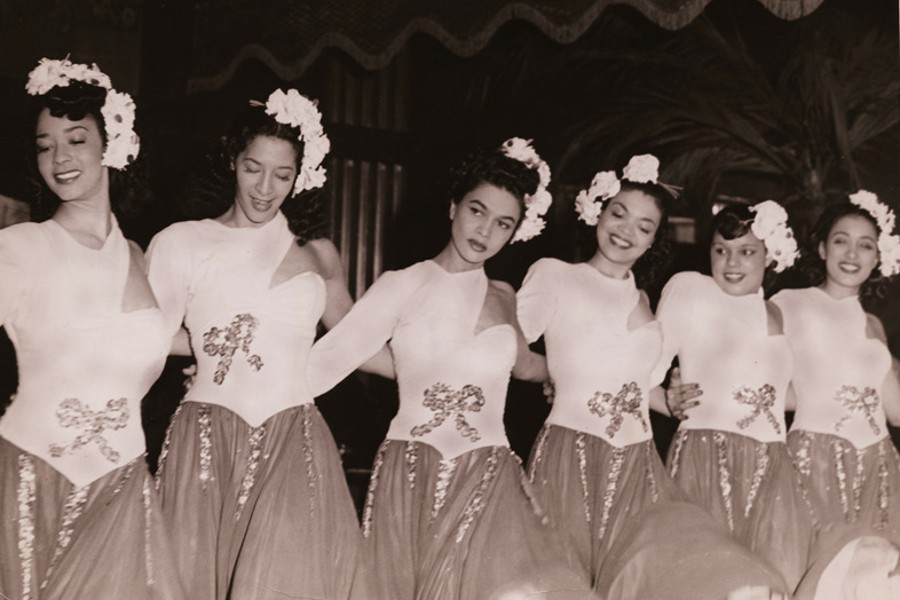
Rafael Hernández Marín, October 24, 1892 – December 11, 1965, was a Spanish Harlem resident, songwriter, and author of hundreds of popular songs in the Latin American repertoire.
He specialized in Puerto Rican styles such as the canción, bolero and guaracha. Among his most famous compositions are “Lamento Borincano”, “Capullito de alhelí“, “Campanitas de cristal”, “Cachita”, “Silencio“, “El cumbanchero”, “Ausencia” and “Perfume de gardenias“.
Early years
Rafael Hernández Marín was born in Aguadilla, Puerto Rico, into a poor family, on October 24, 1892. His parents were María Hernández Marín and Miguel Angel Rosa, though he was given only his mother’s surname.
As a child, he learned the cigar-making craft, from which he made a modest living. He also grew to love music and asked his parents to permit him to become a full-time music student.
When he was 12 years old, Hernández studied music in San Juan under music professors Jose Ruellan Lequenica and Jesús Figueroa. He learned to play many musical instruments, among them the clarinet, tuba, violin, piano, and guitar.
At the age of 14, he played for the Cocolia Orquestra. Hernández moved to San Juan where he played for the municipal orchestra under the director Manuel Tizol. In 1913, Hernández begot his first child, Antonio Hernández (out of wedlock), to Ana Bone.
World War I and the Orchestra Europe
Rafael Hernández (left) with his brother Jesús during World War I, c. 1917.
In 1917, Hernández was working as a musician in North Carolina, when the United States entered World War I. The jazz bandleader James Reese Europe recruited brothers Rafael and Jesús Hernández, and 16 more Puerto Ricans to join the United States Army’s Harlem Hell fighters musical band, the Orchestra Europe.
He enlisted and was assigned to the U.S. 369th Infantry Regiment (formerly known as the 15th Infantry Regiment, New York National Guard, created in New York City June 2, 1913).
The regiment, nicknamed “Harlem Hell fighters” by the Germans, served in France. Hernández toured Europe with the Orchestra Europe. The 369th was awarded the French Croix de Guerre for battlefield gallantry by the President of France.
Hernandez and Pedro Flores

After the war, Hernández moved to New York City. In the 1920s, he started writing songs and organized a trio called “Trio Borincano”. In 1926, fellow Puerto Rican, Pedro Flores who was a composer, joined the Trio.
Even though Hernández and Flores became and always remained good friends, they soon went their separate ways and artistically competed against each other. After the trio broke up, he formed a quartet called “Cuarteto Victoria” which included singer Myrta Silva, also known as La Guarachera and La Gorda de Oro. With both groups, Hernández traveled and played his music all over the United States and Latin America.
On September 2, 1927, Hernández’s sister Victoria opened Casa Hernandez, a music store that also acted as a booking agency and base of operations for her brother. In 1929, Trío Borinquen recorded Linda Quisqueya (originally titled Linda Borinquen) and that same year he founded the “Cuarteto Victoria” (also known as “El Cuarteto Rico”) named after his sister.
In 1932, Hernández moved to Mexico. There, he directed an orchestra and enrolled in Mexico’s National Music Conservatory to further enrich his musical knowledge. Hernández also became an actor and organized musical scores in Mexico’s “golden age” of movies. His wife (and eventual widow) is Mexican.
“Lamento borincano” and “Preciosa”

In 1937, Hernández wrote “Lamento Borincano”. That same year, he also wrote “Preciosa”. In 1947, Hernández returned to Puerto Rico and became the director of the orchestra at the government-owned WIPR Radio.
Hernandez also composed Christmas music, Danzas, Zarzuelas, Guarachas, Lullabies, Boleros, Waltzes, and more.
Hernández’s works’ include “Ahora seremos felices” (Now We Will Be Happy), “Campanitas de cristal” (Crystal Bells), “Capullito de Alhelí”, “Culpable” (Guilty), “El Cumbanchero” (also known as “Rockfort Rock” or “Comanchero” (sic) to reggae aficionados), “Ese soy yo” (That’s Me), “Perfume de Gardenias” (Gardenia’s Perfume), “Silencio” (Silence), and “Tú no comprendes” (You Don’t Understand), among 3,000 others. Many of his compositions were strongly based on Cuban musical idioms, such as the guaracha’s “Cachita” and “Buchipluma na’ ma'”, often mistaken as songs by Cuban authors. His music became an important part of Puerto Rican culture.
Later years

Hernández was the Honorary President of the Authors and Composers Association.
He was also the founder of little league baseball in Puerto Rico.
President John F. Kennedy christened him “Mr. Cumbanchero”.
Death
Hernández died in San Juan on December 11, 1965, shortly after Banco Popular de Puerto Rico produced a TV special in his honor in which he addressed the people for the last time. The special was simulcast on all TV and most island radio stations. The TV special was rebroadcast on May 13, 2007. Rafael Hernández’s remains are buried in the Santa María Magdalena de Pazzis Cemetery of Old San Juan.
Legacy
Puerto Rico has honored his memory by naming public buildings, avenues and schools after him. The airport in Aguadilla is named Rafael Hernández Airport. There are schools in New York City, Boston, and in Newark, New Jersey named after Rafael Hernández.
Renowned Puerto Rican sculptor Tomás Batista created a statue of Hernández which is in the municipality of Bayamón, Puerto Rico. The Interamerican University of Puerto Rico, the repository of his works, operates a small museum in his honor at its Metropolitan Campus in San Juan which is directed by his son, Alejandro (Chalí) Hernández.
The Hernandez Houses housing complex in New York City is named after Rafael Hernández.
At the behest of former senator Lucy Arce, the Senate of Puerto Rico, under the first term of Thomas Rivera Schatz built the Rafael Hernández Plaza with a bigger-than-lifesize statue of the composer, and a figure of a Puerto Rican jíbaro riding a horse honoring his Lamento Borincano. The park is located at the easternmost tip of San Juan’s Paseo de la Covadonga.
Puerto Rican singer Marc Anthony recorded Hernández’s “Preciosa” and sang the song in a 2005 concert in New York City’s Madison Square Garden. According to an article in the New York Times:
“Mr. Anthony did his version of Preciosa. It may have been the night’s most popular love song, precisely because it’s not about a woman: it’s about a whole island, instead.”
In 1969, Puerto Rican actor Orlando Rodriguez played Hernandez in the bio-pic El Jibarito Rafael, which was directed by the Mexican actor Julián Soler.
In 1999, Hernández was posthumously inducted into the International Latin Music Hall of Fame.
On March 23, 2001, Casa Hernandez, the music store which served as Hernandez’s booking agency and base of operations, was listed in the National Register of Historic Places, reference #01000244, as “Casa Amadeo, antigua Casa Hernandez”.
Military decorations and awards
Among Hernández’s military decorations are the following:
Here’s Hernández’s El Cumanchero:
Photo credit: 1) jibaros. 2) jibaros. 3) Rafael Hernández (left) with his brother Jesús during World War I, c. 1917. 4) Youtube video.
Become a Harlem Insider!
By submitting this form, you are consenting to receive marketing emails from: Harlem World Magazine, 2521 1/2 west 42nd street, Los Angeles, CA, 90008, https://www.harlemworldmagazine.com. You can revoke your consent to receive emails at any time by using the SafeUnsubscribe® link, found at the bottom of every email. Emails are serviced by Constant Contact








